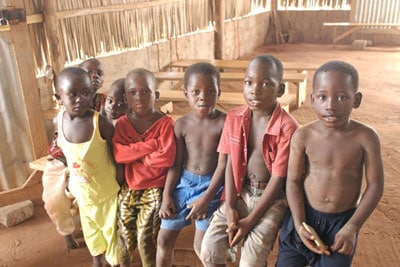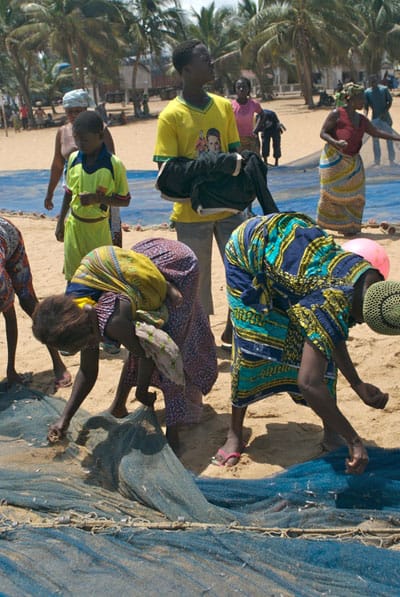Compassion Sri Lanka
In addition to the expectation and excitement of registering our first child in Togo later this year, I’m very excited to say that two weeks ago our Board of Directors unanimously approved plans to begin work in Sri Lanka.
Of course, there is still much preparation that needs to be done to launch this new country, but we’ve proposed a timeline that includes registering the first children in Sri Lanka during the summer of 2009.
Please pray with us that this will be a smooth process, that doors will open as needed and that many little lives in Sri Lanka will be changed for eternity.
Continue Reading ›The State of the Children
Part two in our four part series – The Case for Compassion Togo
The children of Togo are especially affected by the economic and social issues of the country. The infant mortality rate is nearly 60 deaths per 1,000 live births and the under-five mortality rate is approximately 140 deaths out of 1,000 births. For those who survive those first years of life, there are still numerous difficulties to face.

-
- Education — In addition to the overcrowding and lack of funding for teachers, there are numerous issues that negatively impact the education situation in Togo. According to a UNICEF survey, 5 percent of boys and 2.2 percent of girls who attend primary school will continue on to secondary school. A lack of motivation and financial problems are blamed for this, along with the extreme distance sometimes involved (with some children walking three to four miles one way). Girls are especially affected, with 52 percent of girls in northern Togo having no access to school, largely because they are expected to care for the homes and their younger siblings.
-
- Child Trafficking and Labor — The high rate of poverty in Togo has led to children being traded by their parents for small amounts of money or products such as radios, bicycles or clothing. Parents are promised better living conditions for their children but in reality most live as domestic workers or even prostitutes. Children forced to work as domestic, factory and agricultural laborers often receive no wage at all and those who do might earn between four and ten dollars per month. Those who decide to run away usually end up on the streets, which often leads to prostitution for girls and theft or drug addiction for boys.
- Health — Diseases and health problems such as malaria, typhoid, diarrhea and malnutrition have an especially devastating effect on children. There is little access to hospitals or clinics, especially in rural areas. It is estimated that half of Togo’s population may not have access to potable water. It is also believed that more than 60,000 children in Togo have been orphaned by HIV/AIDS.
TOMORROW: The State of the Church
Photo and story by Phoebe Rogers
Continue Reading ›The Case for Compassion Togo
Today, we’re beginning a four part series to introduce you to Togo, the newest country Compassion works in. The Compassion office is now open, and the staff are working to begin registering children in the fall.
An Overview of the Country
Located in West Africa, Togo has a southern coastline that borders the Bight of Benin. Togo’s western neighbor is Ghana, eastern neighbor is Benin and northern neighbor is Burkina Faso.
Slightly smaller than the state of West Virginia, Togo is home to 5.7 million people — 42 percent of whom are under the age of 15. Located on the coast, just across the border with Ghana, the capital city of Lome has a population of approximately 850,000.
French is the official language of Togo and also the language of commerce. There are four other main languages of the country: Ewe and Mina in the south and Kabye and Dagomba in the north.
An individual from Togo is called a Togolese. There are 37 tribes within the country. Approximately 51 percent of the population practices indigenous religious beliefs, while 29 percent are Christian (either Protestant or Catholic) and another 20 percent are Muslim.

Commercial and subsistence agriculture provide employment for about 65 percent of Togo’s population. Many families turn to “petty trading” — street vending — in an attempt to support themselves. Due to the economic instability of the country, there are numerous stories of civil employees only being paid for one out of three or four months of work. This includes teachers, many of whom are trying to oversee classrooms of more than 100 students. As a result, there are also stories of teachers requiring students to pay a small bribe in order for the teacher to actually teach lessons.
Political and economic troubles have led a growing number of the rural population to migrate to the urban areas, which in turn has led to a growing number of social problems within the cities. As is often the case, children seem to be the most negatively affected by these trends.
TOMORROW: The State of the Children
The famous and multi-talented Phoebe Rogers lives in Kigali, Rwanda. She is the regional trainer for Africa, wrote these Togo posts, took the photos and has the longest title know to humankind. It’s something like: Africa Regional Communication, Tours and Visits Learning and Support Specialist. Basically, she trains and supports the Africa region’s communication specialists and tour and visits specialists.


